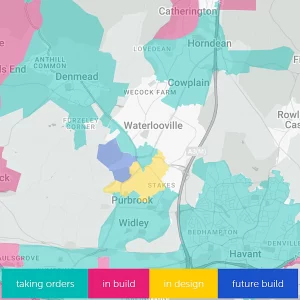Sponsored Links
UK ISP BT and TalkTalk to Appeal Judicial Review of the Digital Economy Act
Posted: 27th May, 2011 By: MarkJ
 Two of the country's largest consumer broadband providers (ISP), BT and TalkTalk UK, have today announced that they are "seeking leave to appeal" against their recently rejected Judicial Review (JR) of the controversial Digital Economy Act (DEA).
Two of the country's largest consumer broadband providers (ISP), BT and TalkTalk UK, have today announced that they are "seeking leave to appeal" against their recently rejected Judicial Review (JR) of the controversial Digital Economy Act (DEA).The Act itself threatens to identify and punish those "suspected" of "illegal" internet copyright infringement via BitTorrent P2P file sharing networks, but others fear that it could lead to innocent broadband customers being unfairly disconnected ("suspended") from their ISP.
The original JR was won last year after the two providers successfully argued for their concerns to be heard in a court of law. However, when the time came to pass judgement (April 2011), the Royal Courts of Justice rejected the majority of their case against the DEA (here).
BT Statement
The High Court concluded that the Act was broadly compatible with EU law, except on the issue of whether ISPs can be required to contribute to costs which the regulator Ofcom will incur when it administers the regime brought into place by the Act. The High Court found that making ISPs pay toward these administrative costs was not compatible with EU rules about what communications companies can be required to pay for.
BT and TalkTalk welcomed this part of the judgment. Nonetheless, both companies believe the High Court’s conclusions on many of the other important and complex issues put before it were not robust enough to provide the certainty and clarity which the companies sought. This is why they are seeking leave to take the matter before the Court of Appeal.
The two companies have chosen to seek an appeal on four of the five grounds addressed in the initial High Court case. These relate to the EU’s Technical Standards Directive, the Authorisation Directive, the E-Commerce Directive and the Privacy and Electronic Communications Directive. BT and TalkTalk believe the DEA is not consistent with these directives.
The High Court concluded that the Act was broadly compatible with EU law, except on the issue of whether ISPs can be required to contribute to costs which the regulator Ofcom will incur when it administers the regime brought into place by the Act. The High Court found that making ISPs pay toward these administrative costs was not compatible with EU rules about what communications companies can be required to pay for.
BT and TalkTalk welcomed this part of the judgment. Nonetheless, both companies believe the High Court’s conclusions on many of the other important and complex issues put before it were not robust enough to provide the certainty and clarity which the companies sought. This is why they are seeking leave to take the matter before the Court of Appeal.
The two companies have chosen to seek an appeal on four of the five grounds addressed in the initial High Court case. These relate to the EU’s Technical Standards Directive, the Authorisation Directive, the E-Commerce Directive and the Privacy and Electronic Communications Directive. BT and TalkTalk believe the DEA is not consistent with these directives.
Crucially BT and TalkTalk believe that the act is not compatible with the E-Commerce Directive, which provides that ISPs cannot be held liable for data going though their networks. Similarly the ISPs have to deal with data that they claim is not specifically permitted under the Privacy and Electronic Communications Directive.
The High Court concluded in April 2011 that the Act was broadly compatible with EU law. As a result the ISPs would need to find some significant errors in that ruling in order to stand any chance of success. On the other hand such an appeal could delay the act and add additional pressure to the already strained political process behind it.
Search ISP News
Search ISP Listings
Search ISP Reviews
Latest UK ISP News








Cheap BIG ISPs for 100Mbps+
150,000+ Customers | View More ISPs
Cheapest ISPs for 100Mbps+
Modest Availability | View More ISPs
Latest UK ISP News
Helpful ISP Guides and Tips
Sponsored Links
The Top 15 Category Tags
- FTTP (6798)
- BT (3881)
- Politics (3074)
- Business (2766)
- Openreach (2663)
- Building Digital UK (2512)
- Mobile Broadband (2475)
- FTTC (2142)
- Statistics (2127)
- 4G (2092)
- Virgin Media (2024)
- Ofcom Regulation (1779)
- 5G (1732)
- Fibre Optic (1604)
- Wireless Internet (1595)
Sponsored
Copyright © 1999 to Present - ISPreview.co.uk - All Rights Reserved - Terms , Privacy and Cookie Policy , Links , Website Rules































